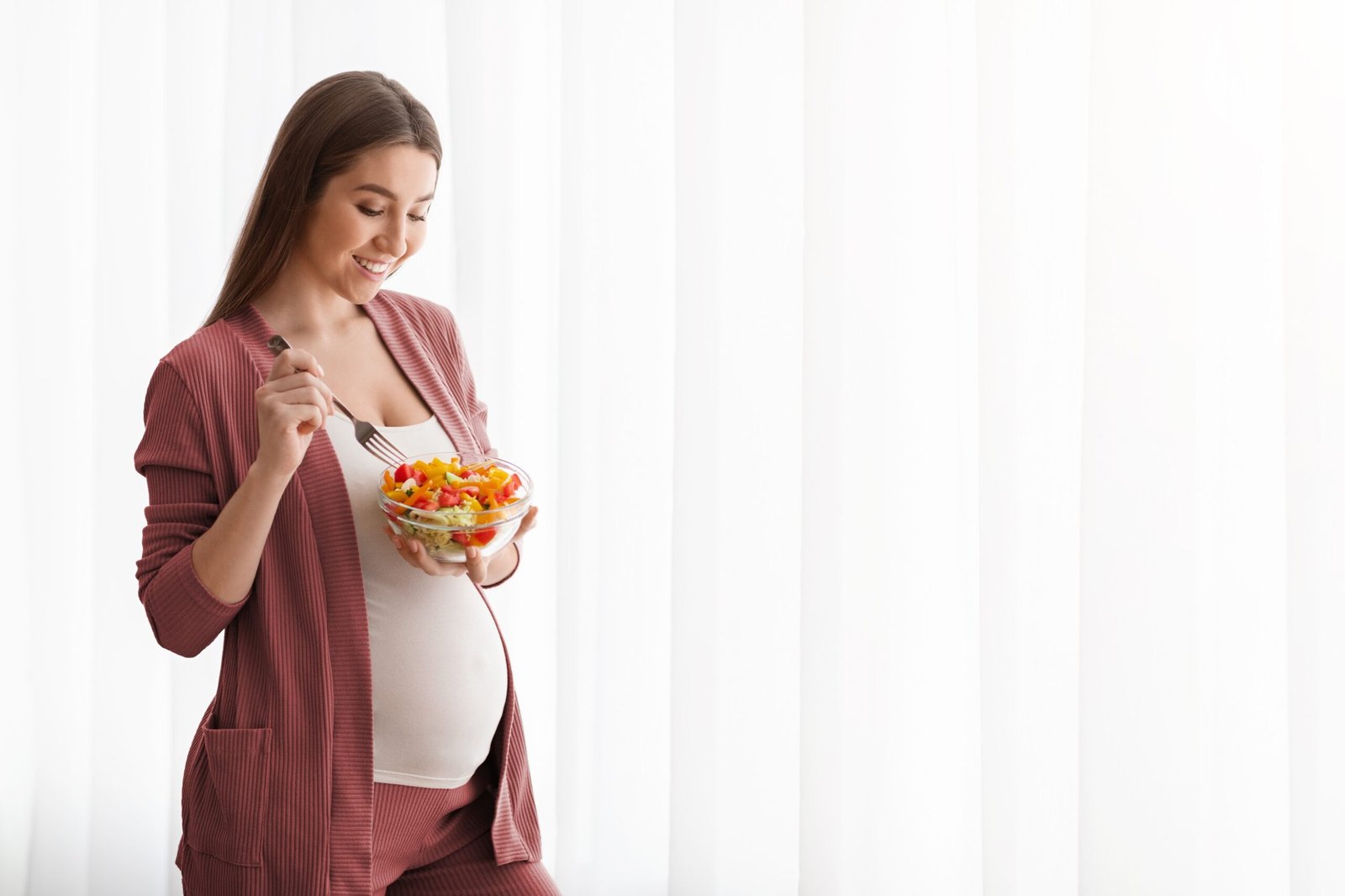
An interesting article of the right pregnancy diet and what to have by specialists from the best IVF clinic Delhi
Pregnancy is a beautiful time in a woman’s life when another life is growing inside of her. Please remember that you need to eat for 2 as well as ensure that you are giving your body all essential nutrients. North India’s best IVF clinic talks about 7 such vital nutrients your body is asking for.
Folic Acid
Folic acid is a man-made form of a B vitamin called folate. Folate plays an important role in the production of red blood cells and helps your baby’s neural tube develop into their brain and spinal cord. The best food sources of folic acid are fortified cereals. Folate is found naturally in dark green vegetables and citrus fruits. As a leading specialist of the best IVF clinic in Delhi – Gunjan IVF, Dr. Garima Sharma says, “before pregnancy, you need 400 mcg (micrograms) of folic acid per day. During pregnancy and when breastfeeding, you need 600 mcg per day. This can be taken from from foods or vitamins that your doctor will prescribe.”
Foods rich in folic acid are:
Dark green, leafy vegetables
Citrus fruits
Peas
Lentils
Peanuts
Bananas (A great source of folic acid, calcium, potassium and vitamin B6)
Calcium
Calcium during pregnancy can reduce your risk of preeclampsia, a serious medical condition that causes a sudden increase in blood pressure. Calcium also builds up your baby’s bones and teeth. “Pregnant ladies should get 1,000 mg (milligrams) of calcium a day, says the highly specialised doctor from the best IVF clinic in New Delhi – Gunjan IVF
Foods rich in calcium:
Dairy products (milk, cheese, curd, paneer)
Dark green, leafy vegetables
Soy beans
Vitamin D
Vitamin D helps the calcium to build the baby’s bones and teeth. All women, pregnant or not, should be getting 600 IU (international units) of vitamin D per day.
Foods/Sources rich in vitamin D:
Eggs
Milk
Dry fruits
And, own totally free of cost – sunlight
Protein
“It’s no secret that our bodies require an adequate amount of protein to fulfil basic functions like muscle growth, wound healing and cell signalling — and protein is especially important when you are expecting,” says Dr. Gunjan Gupta, Founder of the leading IVF center Ghaziabad – Gunjan IVF World. This macronutrient is an essential source of energy that repairs parts of the body like the mom’s brain, muscle and blood, all of which undergo normal changes during pregnancy. Getting the right amount of protein in your diet also gives your little one the fuel he/she needs to grow.
Foods rich in protein:
Paneer
Lentils
Eggs
Lean meat
Chickpeas
Iron
Iron is also very important for your baby’s growth and brain development. During pregnancy, the amount of blood in your body increases, so you need more iron for yourself and your growing baby. You should get 27 mg (milligrams) of iron a day.
Foods rich in iron:
Beetroot
Spinach
Dry Fruits
Jaggery
Gunjan IVF World is one of the rare IVF chains that has top specialists for Obstetrics & Birthing too. This means something for our patients. It means that when they come to Gunjan IVF World – the leading IVF center in Ghaziabad, Janakpuri, Meerut & now Noida too – they are assured of something much more than a success rate. They are assured of a healthy IVF pregnancy, excellent pre-natal care, state-of-the-art maternity & birthing facility and the fact that they take home a baby. healthy IVF pregnancy, excellent pre-natal care, state-of-the-art maternity & birthing facility and the fact that they take home a baby.
20+ Years Of Experience as Fertility Specialists
20 Years Of Experience as a Fertility Specialists
National Fertility Awards 2023
Call Us
+919990044555
Book Appointment
Follow Us On
Related Blogs
Why is Nutrition Important During Adolescence?
Teenage years are one of the most exciting moments in life. During teenage, a body undergoes hormonal changes, weight gain or loss, growth, and physical changes.
What is the Difference Between Puberty and Adolescence?
Both puberty and adolescence are linked to one another. They depend on how these changes occur at this stage of life. Puberty and adolescence are closely associated with one another, but they are not the same thing.
Follow Us On
About Author





